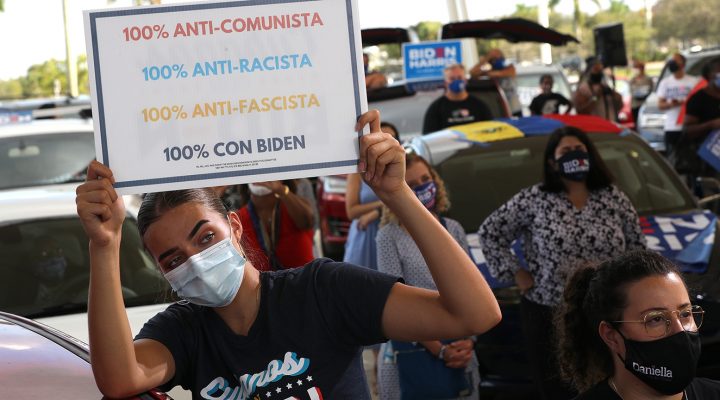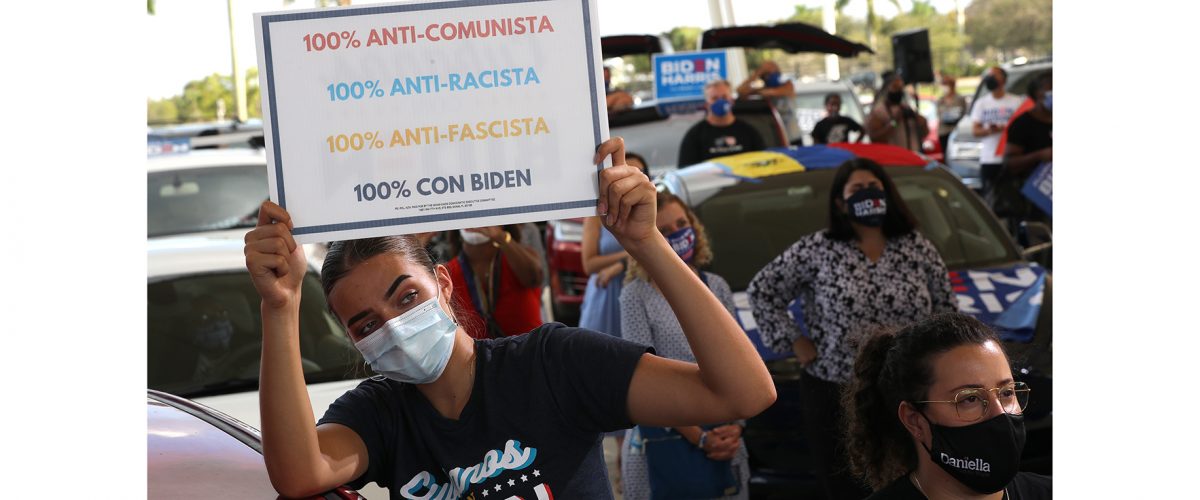Most Hispanics in Florida would vote for Joe Biden over Gov. Ron DeSantis in the 2024 election but would switch to Donald Trump if he ends up as the Republican presidential candidate, according to a new survey by Unidos US.
The November poll of 2,707 eligible Latino voters in Florida found Biden holds a 7-point edge over DeSantis, at 44% to 37%, while Trump leads Biden by a 6-point margin, 45% to 39%.
Nationally, the survey found Latinos gave Biden a 47% to 44% approval rating. In Florida, 36% approve of the job he’s doing compared to 57% who disapprove.
“That’s by far the low watermark in his state-by-state polling among Latinos in this poll,” said Gary Segura, president of BSP Research, who discussed the study in a recent webinar.
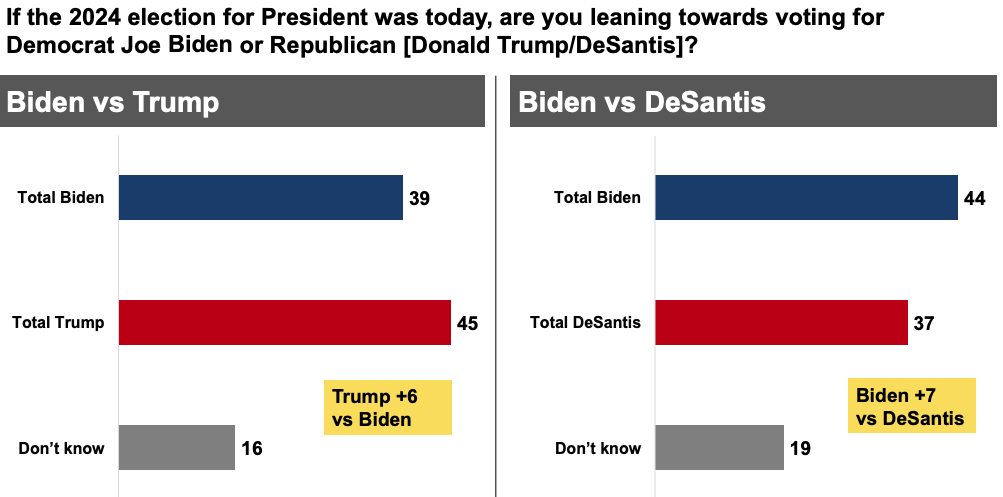
The conservative bent among most Florida Latinos is due to the high percentage of Cubans in the state. Biden’s approval rating among Cubans registered at 36%, with 60% opposing him in the Unidos survey.
“The Cuban population is far more heavily Republican than any other group,” Segura said. “That is specifically related to the Cuban revolution and the evacuation of Cubans opposed to the Castro regime to South Florida beginning in the 1960s.”
But that staunch Republican base disagrees with one key plank of the party platform advanced by evangelical Christians. The survey found a strong majority of Latino Floridians (65%) think it’s wrong to criminalize abortion and to take the choice from others. Among Hispanics nationally, the figure was 71%.
“We have long faced the mythology that Latinos were overwhelmingly conservative on abortion,” Segura said. “They were more conservative than non-Hispanic whites, but the margin was always smaller than people understood it to be. The numbers are clear, by a margin of 65% to 29%, that Florida Latinos oppose efforts to restrict abortion rights.”
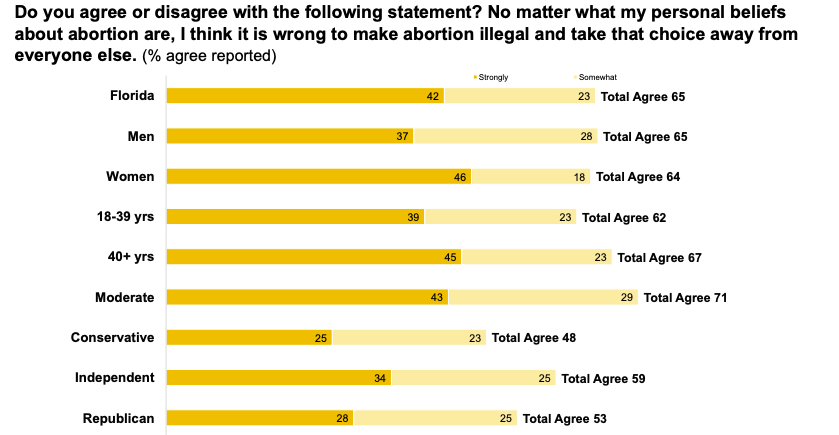
Political issues are not among the leading concerns of Florida’s Hispanic community, which gave much more weight to economic and public safety issues.
“Florida’s top issues are consistent with Latinos across the country: inflation, jobs, health care costs, crime/guns, housing costs, and immigration. That order matches the national order,” Unidos reported.
Inflation and cost-of-living increases were cited as matters elected officials should most address, at 60%. “When we ask people about things like inflation, what they’re talking about is food and basic necessities, gasoline, health insurance and housing. And housing really emerged in this study for the first time as a growing concern for Latino voters,” Segura said.
The 45% who identified jobs and the economy as their key issues want higher-paying jobs with paid sick leave, retirement benefits and health insurance. Many are worried about reduction in work hours and layoffs and having to work extra shifts and multiple jobs, the study found.
High monthly premiums, high co-pays and medical staff unable to work with Hispanics were cited as problems by the 30% who named health care as the top issue. “Health care costs and prescription drug costs worry Floridian Latinos deeply,” Segura said.
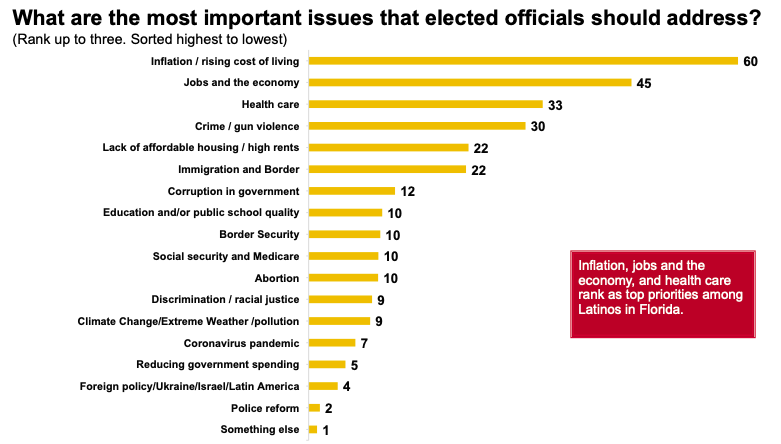
Most of the 30% who said crime and gun violence are the biggest threats complained it is too easy to obtain assault weapons and other guns and said their communities need more mental health and safety programs. “When Latinos talk about crime and guns, the overwhelming concern is guns and mass shootings, with traditional crime concerns ranked somewhere below,” he said.
Ranking sixth on the list of challenges facing Latinos was immigration and the border, at 22%. Within that category, half said a path to citizenship should be provided for undocumented immigrants who are long-time U.S. residents, and 48% said that option should be provided to Dreamers. Increased border security (38%), increasing legal immigration using visas (36%) and providing asylum for migrants fleeing war (33%) rounded out the top five concerns in that category.
Florida’s Hispanics also are in lockstep, at 78%, when asked if elected officials and other leaders should speak out against white supremacy, white nationalism and all forms of hate speech.
Most Latinos in Florida agreed the political candidates they support should be able to bring people together (91%), fight for people’s priorities and compromise to accomplish goals (90%) and have realistic policy ideas (90%).
But partisanship re-emerged when respondents were asked if Democrats or Republicans are best at addressing their main concerns. Among Florida’s Hispanics, Republicans lead Democrats 34% to 30%, with 16% answering neither.
“This is the only state in which that is the case,” Segura said. “In Florida, Latinos are unique in trusting Republicans over Democrats to handle their most important issues.”
But GOP House leadership also is not viewed favorable among Florida Hispanics, the survey found, with 42% saying they’re doing fine and 44% not approving.
The survey also found 61% of Hispanics in Florida said it is certain they will vote in the November 2024 election, including 74% of conservatives, 49% of moderates and 67% of liberals.

